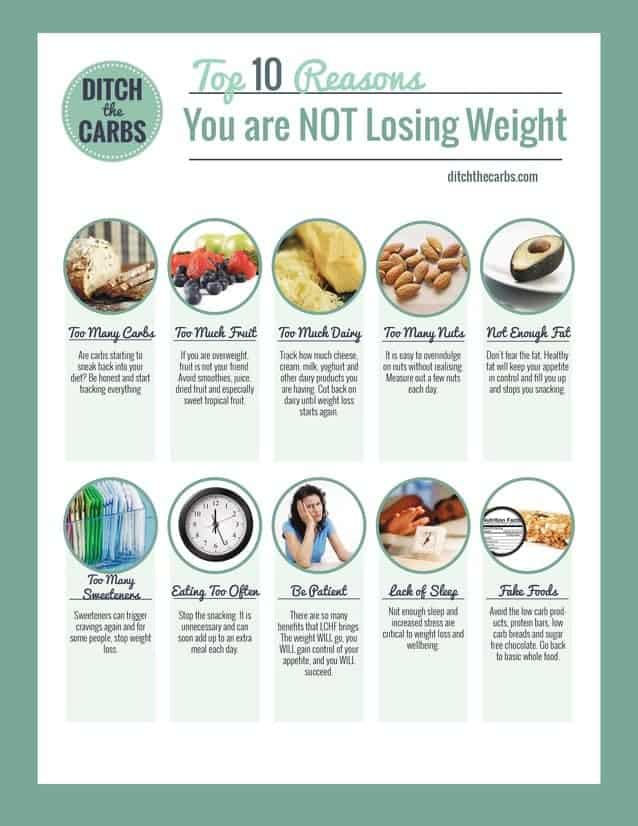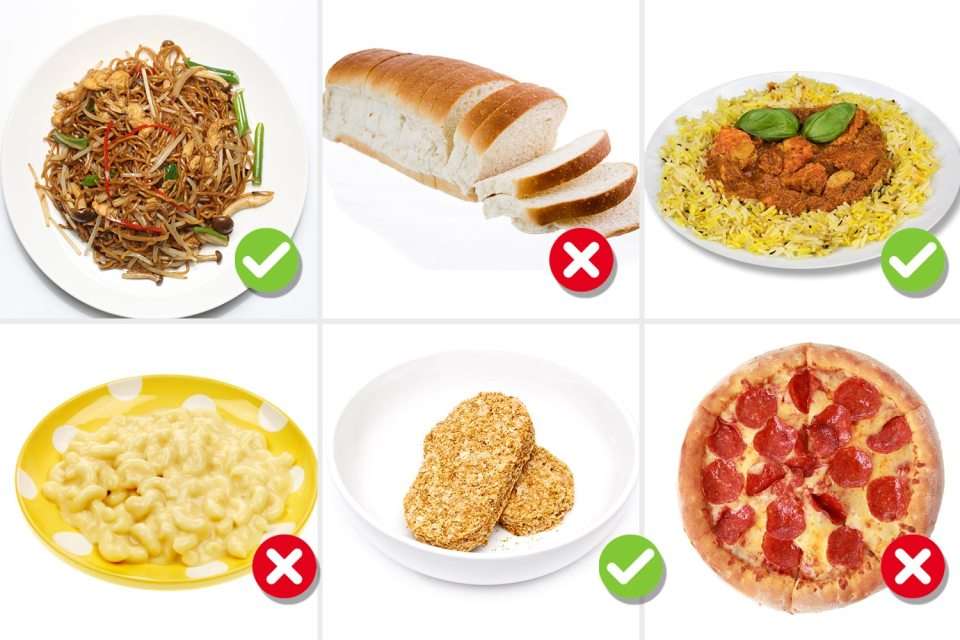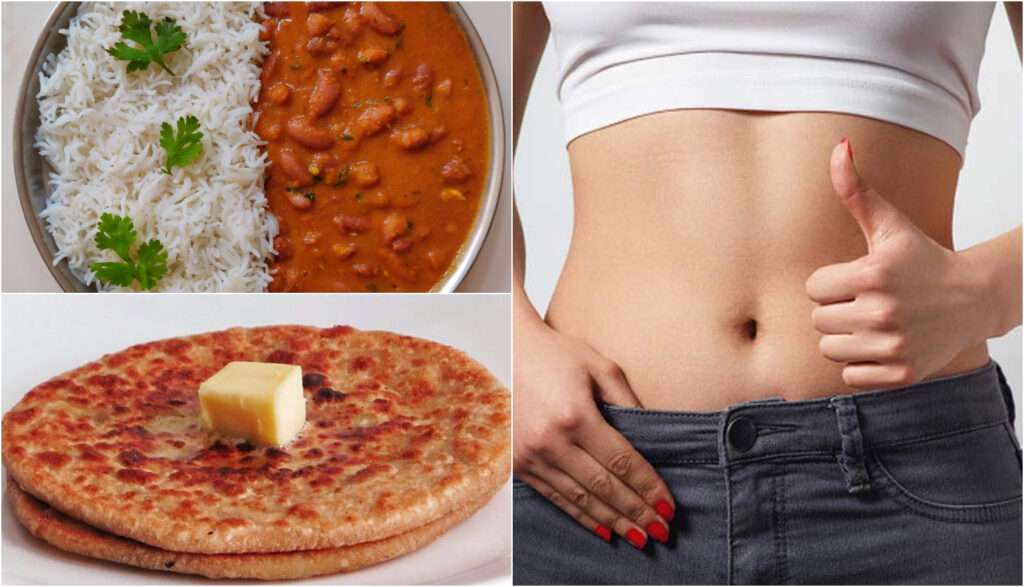Hey there! Are you curious to know if it’s possible to lose weight without eliminating carbs from your diet? In this article, we’ll explore this topic and provide you with some valuable information. You’ll learn about the role of carbohydrates in our bodies, different types of carbs, and whether reducing or modifying carb intake can still lead to weight loss. So, let’s get started and discover if you can achieve your weight loss goals while still enjoying your beloved carbs!

Understanding Carbohydrates
What are carbohydrates?
Carbohydrates are one of the three main macronutrients that provide energy to our body. They are found in a wide range of foods, including grains, fruits, vegetables, and dairy products. Carbohydrates are made up of sugar molecules, and they come in several forms such as sugars, starches, and fibers.
Different types of carbohydrates
Carbohydrates can be classified into two main categories: simple carbohydrates and complex carbohydrates. Simple carbohydrates, also known as sugars, are found in foods like candy, soda, and processed snacks. They are quickly digested and can cause a rapid spike in blood sugar levels.
On the other hand, complex carbohydrates, such as whole grains, legumes, and starchy vegetables, take longer to break down and provide a more sustained release of energy. They also contain essential nutrients like fiber, vitamins, and minerals, making them a healthier choice overall.
How carbohydrates affect weight loss
Carbohydrates have been the subject of much debate when it comes to weight loss. Some people believe that cutting out carbs completely is the only way to shed pounds. However, this is not entirely true.
Carbohydrates are your body’s primary source of energy, and they play a crucial role in maintaining a balanced diet. When consumed in moderation and as part of a balanced meal plan, carbohydrates can actually support weight loss.
Balancing Nutritional Needs
Importance of a balanced diet
A balanced diet is essential for overall health and well-being. It ensures that your body gets all the necessary nutrients it needs to function properly. Cutting out entire food groups, such as carbohydrates, can lead to nutritional deficiencies and imbalances.
By incorporating a variety of foods from different food groups, you can meet your nutritional needs and maintain a healthy lifestyle. It is important to strike a balance between proteins, carbohydrates, and fats to support weight loss and overall health.
The role of carbohydrates in a healthy diet
Carbohydrates play a vital role in a healthy diet. They provide energy, regulate blood sugar levels, and support brain function. By including carbohydrates in your diet, you can prevent dips in energy levels, avoid cravings, and maintain a consistent metabolic rate.
However, the type and amount of carbohydrates consumed are crucial. Opting for whole grains, fruits, vegetables, and legumes, which are rich in fiber and nutrients, is a healthier choice compared to refined carbohydrates found in sugary snacks and processed foods.
Determining the right amount of carbs for weight loss
The right amount of carbohydrates for weight loss varies from person to person. Factors such as age, gender, activity level, and overall health should be taken into consideration.
A general guideline is to consume around 45-65% of your daily calories from carbohydrates. For a 1500 calorie diet, this would equate to approximately 168-244 grams of carbohydrates per day. However, it is always best to consult with a healthcare professional or a registered dietitian to determine the appropriate carbohydrate intake for your weight loss goals.

Weight Loss Strategies
Calorie deficit and weight loss
To lose weight, you need to create a calorie deficit, which means consuming fewer calories than your body needs to maintain its current weight. Regardless of the macronutrient composition of your diet, calorie deficit is the key to weight loss.
While cutting calories is important, it doesn’t mean you have to completely eliminate carbohydrates. By choosing healthier carbohydrate sources and being mindful of portion sizes, you can still achieve your weight loss goals without feeling deprived.
Choosing healthier carbohydrate sources
When it comes to weight loss, not all carbohydrates are created equal. Opting for healthier carbohydrate sources can make a significant difference in your weight loss journey. Whole grains, such as brown rice, quinoa, and whole wheat bread, are excellent choices as they are rich in fiber and nutrients. They also provide a slower release of energy, helping you feel fuller for longer.
Fruits and vegetables are also great sources of carbohydrates. They are low in calories and high in fiber, vitamins, and minerals. By incorporating a variety of fruits and vegetables into your diet, you can satisfy your carbohydrate needs while keeping your calorie intake in check.
The importance of portion control
Portion control is a crucial aspect of weight loss. Even healthy carbohydrates can contribute to weight gain if consumed excessively. It’s important to be mindful of serving sizes and not to overindulge.
A handy tip to control portions is to use smaller plates and bowls. This can help create the illusion of a bigger meal while consuming fewer calories. Additionally, listening to your body’s hunger and fullness cues can help you avoid overeating and maintain a healthy balance.
Effect of Carbohydrates on Metabolism
Impact of low-carb diets on metabolism
Low-carb diets have gained popularity for weight loss, mainly because they can lead to a rapid initial weight drop. However, long-term adherence to low-carb diets can have a negative impact on your metabolism.
When carbohydrates are restricted in the diet, the body starts to rely on stored fat for energy. While this can result in weight loss, it can also lead to a reduction in muscle mass and a decrease in overall metabolic rate. This means that the body becomes less efficient at burning calories, which can make weight loss more challenging in the long run.
Understanding insulin and its role in weight loss
Insulin is a hormone that helps regulate blood sugar levels. It is released by the pancreas in response to increased glucose levels in the blood, primarily after consuming carbohydrates.
Contrary to popular belief, insulin is not the enemy when it comes to weight loss. It helps transport glucose into cells to be used as energy and prevents excess glucose from accumulating in the bloodstream. By managing insulin levels through a balanced diet that includes carbohydrates, you can support weight loss and maintain a healthy metabolism.
Maintaining a healthy metabolism with carbohydrates
Carbohydrates are essential for maintaining a healthy metabolism. They provide the energy needed for physical activity, support brain function, and fuel various bodily processes. When consumed in moderation and as part of a balanced diet, carbohydrates can help maintain a healthy metabolic rate and support weight loss.

Healthy Carbohydrate Alternatives
Identifying whole grain options
When choosing carbohydrates, opting for whole grains is a healthier alternative to refined grains. Whole grains are less processed, retaining the bran, germ, and endosperm, which contain important nutrients like fiber, B vitamins, and minerals.
Some examples of whole grains include brown rice, whole wheat bread, quinoa, oats, and barley. These options provide a greater nutritional value and a more sustained release of energy compared to their refined counterparts.
Incorporating fruits and vegetables into the diet
Fruits and vegetables are nutrient-dense carbohydrates that offer a wide range of health benefits. They are packed with vitamins, minerals, antioxidants, and fiber. By incorporating a variety of fruits and vegetables into your diet, you can not only satisfy your carbohydrate needs but also promote overall wellness.
Try to include a colorful variety of fruits and vegetables in your meals and snacks. Berries, leafy greens, broccoli, bell peppers, and sweet potatoes are excellent choices. They not only provide carbohydrates but also contribute to hydration, satiety, and overall health.
Exploring alternative sources of energy
Carbohydrates are not the only source of energy. Protein and fats also play a role in fueling your body. Including lean sources of protein, such as chicken, fish, tofu, and legumes, can help keep you feeling full and satisfied while supporting muscle growth and repair.
Incorporating healthy fats, like avocados, nuts, seeds, and olive oil, into your diet can also provide sustained energy and promote satiety. These fats are rich in omega-3 fatty acids, which are beneficial for heart health and overall well-being.
Exercise and Weight Loss
The relationship between exercise and weight loss
Exercise is an important component of weight loss. It helps burn calories, build muscle, improve cardiovascular health, and boost overall metabolism. By incorporating regular exercise into your routine, you can accelerate the weight loss process while maintaining a balanced carbohydrate intake.
Engaging in a mix of cardiovascular exercises, such as running, swimming, or cycling, and strength training exercises, like lifting weights or bodyweight exercises, can help maximize calorie burn and improve body composition.
Types of exercises that promote fat burning
Certain types of exercises can specifically target fat burning. HIIT (High-Intensity Interval Training) workouts, for example, are known to be highly effective for burning calories and fat. These workouts involve short bursts of intense activity followed by periods of rest or low-intensity exercise.
Additionally, incorporating resistance training into your exercise routine can help build lean muscle mass. Muscle burns more calories at rest than fat, so by increasing your muscle mass, you can boost your metabolism and enhance your weight loss efforts.
Combining exercise with a balanced carbohydrate intake
To maximize weight loss and support exercise performance, it is important to fuel your body with the right amount and type of carbohydrates. Consuming a mix of complex carbohydrates and easily digestible simple carbohydrates before and after workouts can help provide the necessary energy for optimal performance and recovery.
For example, a pre-workout snack could consist of a banana and a handful of almonds, providing a combination of fast-acting and sustained energy. Post-workout, a balanced meal containing whole grains, lean protein, and vegetables can aid in muscle recovery and replenish glycogen stores.

Meal Planning for Weight Loss
Creating a well-rounded meal plan
Meal planning is a useful tool for weight loss success. By planning your meals in advance, you can stay on track with your dietary goals and make healthier food choices. A well-rounded meal plan consists of a balance of carbohydrates, protein, and fats, along with plenty of fruits and vegetables.
When creating a meal plan, it’s important to consider your individual preferences, dietary restrictions, and calorie needs. Include a variety of nutrient-dense foods and try to find healthy alternatives to your favorite carb-rich dishes.
Including carbohydrates in a weight loss meal plan
Carbohydrates should be included in a weight loss meal plan, albeit in appropriate portions. As mentioned earlier, whole grains, fruits, vegetables, and legumes are healthier carbohydrate options that provide essential nutrients and fiber.
A typical day on a weight loss meal plan could include a breakfast of oatmeal topped with berries and a sprinkle of nuts, a lunch of grilled chicken with quinoa and roasted vegetables, and a dinner of whole wheat pasta tossed with shrimp, vegetables, and a light tomato sauce.
Preventing carbohydrate cravings and overeating
Cutting out carbohydrates completely can often lead to intense cravings and feelings of deprivation, which can ultimately lead to overeating or bingeing on unhealthy options. To prevent this, it’s important to include carbohydrates in your meals and snacks in moderate amounts.
Choosing whole grain options with a higher fiber content can help you feel fuller for longer and reduce cravings. Additionally, pairing carbohydrates with protein and healthy fats can further enhance satiety and prevent excessive snacking.
Tracking Progress and Adjustments
Importance of tracking weight loss progress
Tracking your weight loss progress is essential for staying motivated and making necessary adjustments to your plan. Regularly weighing yourself, taking body measurements, and keeping a food journal can provide valuable insights into your progress and help you identify any potential roadblocks.
However, it’s important to remember that weight loss is not solely determined by the number on the scale. Other factors such as changes in body composition, energy levels, and overall well-being should also be taken into account.
Analyzing the impact of carbohydrate intake on weight loss
As you track your progress, it can be beneficial to analyze the impact of carbohydrate intake on your weight loss journey. Pay attention to how different types and amounts of carbohydrates affect your energy levels, appetite, and overall satisfaction.
It’s important to find the right balance for your body. Some individuals may find that a lower carbohydrate intake works best for weight loss, while others may thrive on a moderately higher carbohydrate intake. Experiment with different approaches and listen to your body’s cues to find what works best for you.
Making adjustments for optimal results
Weight loss is an ongoing journey that may require adjustments along the way. If you find that your weight loss stalls or slows down, it may be time to reassess your meal plan and make necessary adjustments.
Consider consulting with a healthcare professional or a registered dietitian who can provide personalized guidance based on your specific needs. They can help you fine-tune your carbohydrate intake and make any necessary modifications to support your weight loss goals.

Mindset and Motivation
The role of mindset in successful weight loss
Weight loss goes beyond just physical changes; it also requires a positive mindset. A healthy mindset is crucial for long-term success and maintaining a balanced relationship with food.
Instead of viewing carbohydrates as “good” or “bad,” try to adopt a more neutral and balanced view. Focus on the nutritional value of foods and how they can support your overall health and well-being. Cultivating a positive mindset can help you stay motivated, make sustainable choices, and overcome obstacles.
Staying motivated without cutting out carbs
Losing weight without cutting out carbs is entirely possible. By choosing healthier carbohydrate options and incorporating them into your diet in appropriate portions, you can enjoy a wide variety of foods while still achieving your weight loss goals.
Keeping your meals interesting and varied can also help you stay motivated. Experiment with different recipes and flavors to keep your taste buds satisfied. Remember, a sustainable approach is key to long-term success.
Overcoming challenges and setbacks
Challenges and setbacks are a normal part of any weight loss journey. It’s important to approach them with resilience and a growth mindset. If you have a day where you indulge in a higher carbohydrate meal or snack, don’t beat yourself up. Instead, focus on getting back on track with your next meal and continuing your journey towards your weight loss goals.
Remember to celebrate every small victory along the way, whether it’s losing a few pounds or making healthier food choices. Surround yourself with a supportive community or seek guidance from a professional to help you stay motivated and overcome any obstacles you may encounter.
Conclusion
Losing weight without cutting out carbs is not only possible but also sustainable in the long run. By understanding the role of carbohydrates in a healthy diet, making informed choices, and maintaining a balanced approach to nutrition, you can achieve your weight loss goals while still enjoying a wide variety of foods.
Embrace the power of a well-rounded diet that includes whole grains, fruits, vegetables, lean proteins, and healthy fats. Listen to your body’s cues, track your progress, and make necessary adjustments along the way. With a positive mindset, motivation, and a focus on overall well-being, you can sustain long-term weight loss and achieve a healthier lifestyle.
